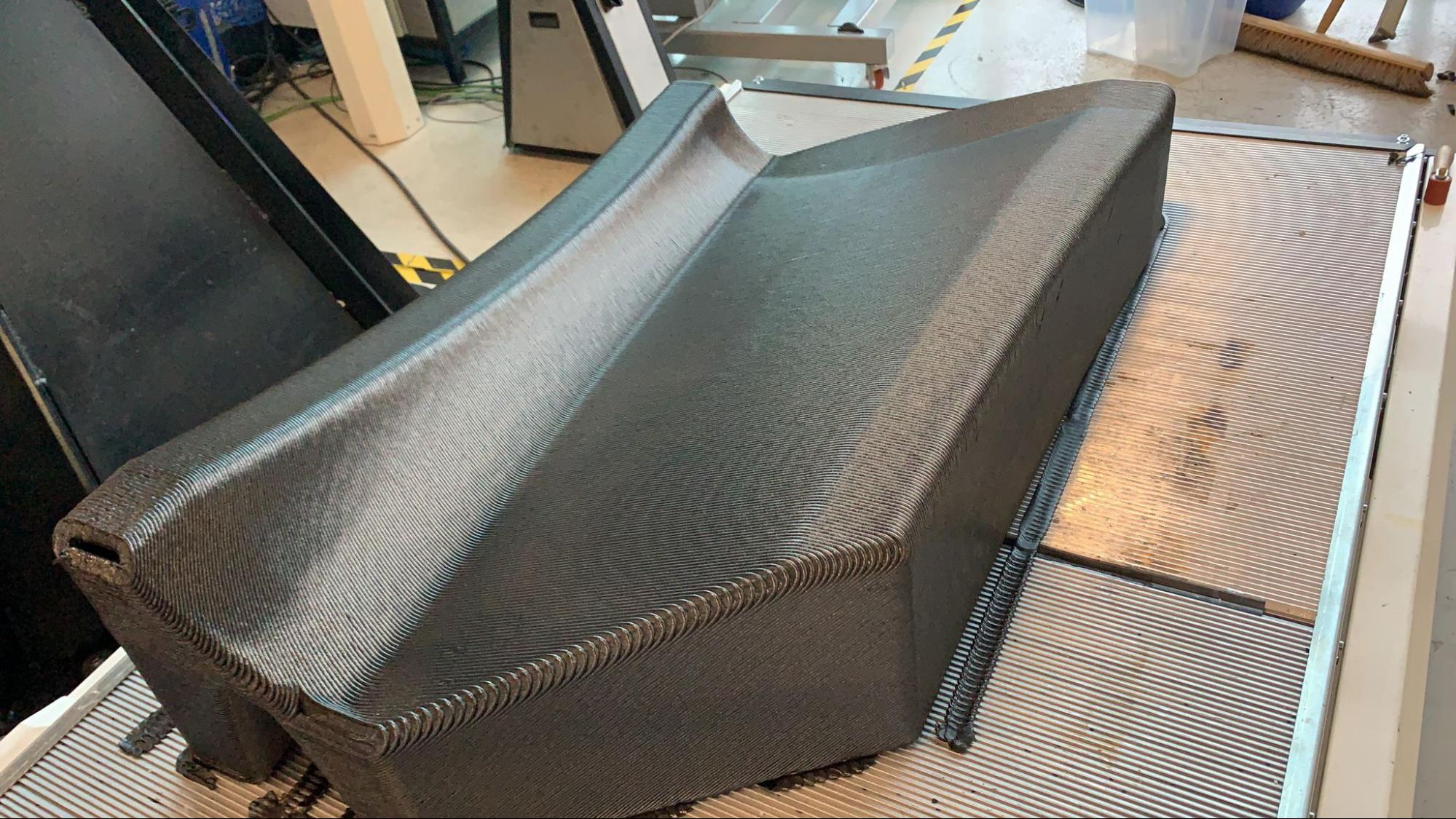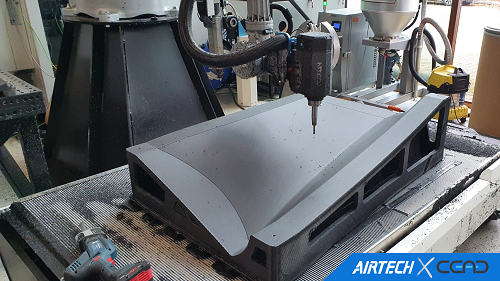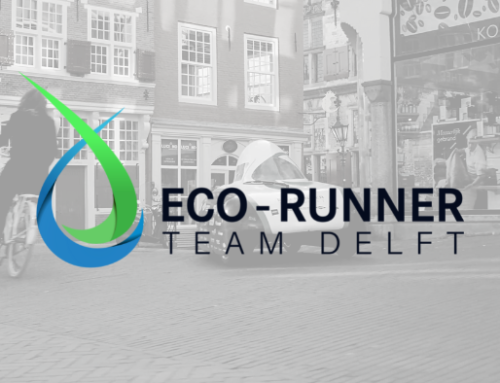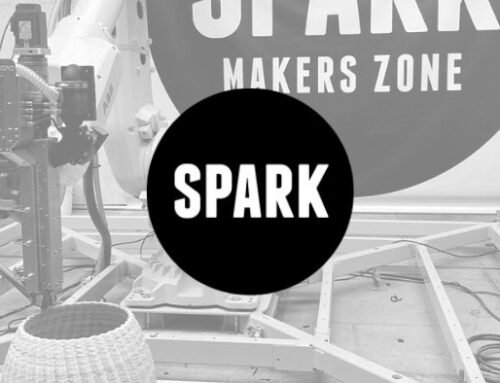Scaling back production time of automotive autoclave tool from weeks to days
The challenge
The challenge of this project was to demonstrate that 3D printing of an autoclave tool can in fact be manufactured in a shorter time period, from beginning to end. The design of the autoclave tool consists of a double curved surface, representing the shape of a sports car door.

The Flexbot Solution
The Flexbot offers the option to combine 3D printing with milling. Printing and milling is done in the same coordinate system. When milling to such high tolerances, the product normally has to undergo measurement cycles to ensure high accuracy. However, our print bed ensures a strong mechanical anchor with the product so it stays in place.
Smooth surfaces are realized with milling, after which minimal post-processing is required. For the tool, Dahltram® C-250CF is used, one of the many resins from Airtech which has been validated on the Flexbot system. Dahltram® C-250CF is a modified polycarbonate reinforced with 20% carbon fibre, an additive manufacturing polymer suitable for low to medium temperature autoclave tooling solutions (121°C). Airtech Advanced Materials Group has been extruding and compounding resins for nearly 50 years and has expanded its offering with a line of technologically advanced and reliable resins for use in additive manufacturing.
The advantages/results
The CAD model, CAM programming, 3D printing and milling was realised within a week, instead of multiple. Since all the programming was done, the second production cycle required even less effort and time. This shows that this method is not only suited for single productions, but also for (small) series. Using the Flexbot, not only is the duration of the production process significantly shorter, it also takes less manpower and saves on material costs, compared to traditional tool making processes. Dahltram® C-250CF in use on the Flexbot, offers greater stiffness versus glass and low warpage for predictable results. It is a cost effective material that provides higher strength, higher temperature performance and higher throughput. Extensive autoclave testing at Airtech has shown that 3D printed tooling with Airtech materials can be used successfully for at least 350 curing cycles without any significant degradation. They are planning to go up to 500 cycles.






